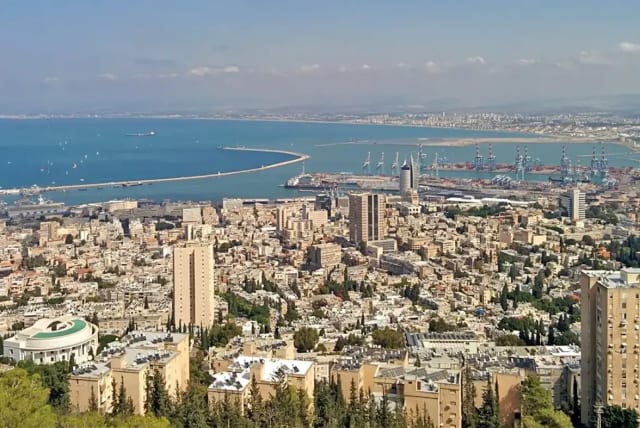Israel says seaports stay open for business despite Lebanon conflict

Ports in Haifa are operating at a standard capacity during tension with Lebanon.
Israel's ports in the northern city of Haifa were operating at normal capacity despite an escalation in fighting with Hezbollah in nearby Lebanon and the city being targeted by rocket fire, Israeli authorities said on Tuesday.
Haifa is Israel's third-largest city and handles much of the country's vital seaborne trade. On Monday, sirens sounded across the city for the first time after months of border-area conflict, and the military's defense systems fired interceptors at Hezbollah rockets above the Haifa bay. No damage was caused.
The government's port authority issued a letter to clarify that no changes had been made at Israeli ports ranging from Eilat on the Red Sea in Israel's far south to the major Mediterranean ports in Haifa and Ashdod.
"Following recent events, we find it necessary to reassure that our ports ... are fully open for business and functioning at full capacity," said the letter, which was seen by Reuters.
"Israeli ports are considered the safest in the world, thanks to multi-layered security, a high standard of cyber security at all times, and also protected by the highly efficient Iron Dome, among other anti-rocket systems both on land and at sea that are assigned specifically to protect our ports."
'Changes will be communicated immediately'
Israel's transportation ministry, which oversees the administration of shipping and ports, gave no details beyond what was in the letter, saying only that all activities were coordinated with the military's home front command.
"The security situation is assessed continuously; any change will be communicated immediately," the port administration added in the letter.
The letter said Israel would provide war damage compensation for commercial vessels within the country’s economic waters.
In August, the Marshall Islands ship registry, one of the world’s biggest flags, maintained its highest security level for Haifa port and Ashdod in the south.
"The threat of collateral damage to merchant vessels has increased significantly," the Marshall Islands said in its August advisory.
A number of ports operate in Haifa, including Haifa Port, led by India's Adani Group, Bayport, operated by China's SIPG, and the smaller Israel Shipyards port.
Shipping and insurance sources said ships calling at Israeli ports faced the broader threat of being targeted by Yemen’s Houthi militia in open waters in the Red Sea.
The Iran-backed Houthis say they are acting in solidarity with Palestinians in Israel's war on Gaza. In more than 70 attacks, the Houthis have sunk two vessels, seized another, and killed at least three seafarers.
They have warned that ships with any links to Israel, the UK, or the United States will be attacked.
Industry sources said additional war risk premiums, paid when vessels sail through the Red Sea to Israel from Asia, were quoted at up to 2% of the vessel's value from around 1.0% in August.
Jerusalem Post Store
`; document.getElementById("linkPremium").innerHTML = cont; var divWithLink = document.getElementById("premium-link"); if (divWithLink !== null && divWithLink !== 'undefined') { divWithLink.style.border = "solid 1px #cb0f3e"; divWithLink.style.textAlign = "center"; divWithLink.style.marginBottom = "15px"; divWithLink.style.marginTop = "15px"; divWithLink.style.width = "100%"; divWithLink.style.backgroundColor = "#122952"; divWithLink.style.color = "#ffffff"; divWithLink.style.lineHeight = "1.5"; } } (function (v, i) { });


